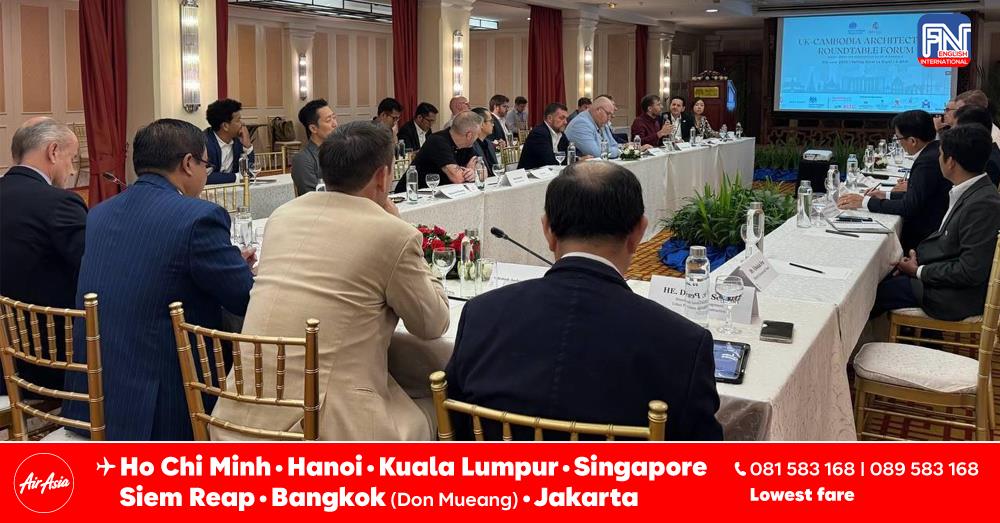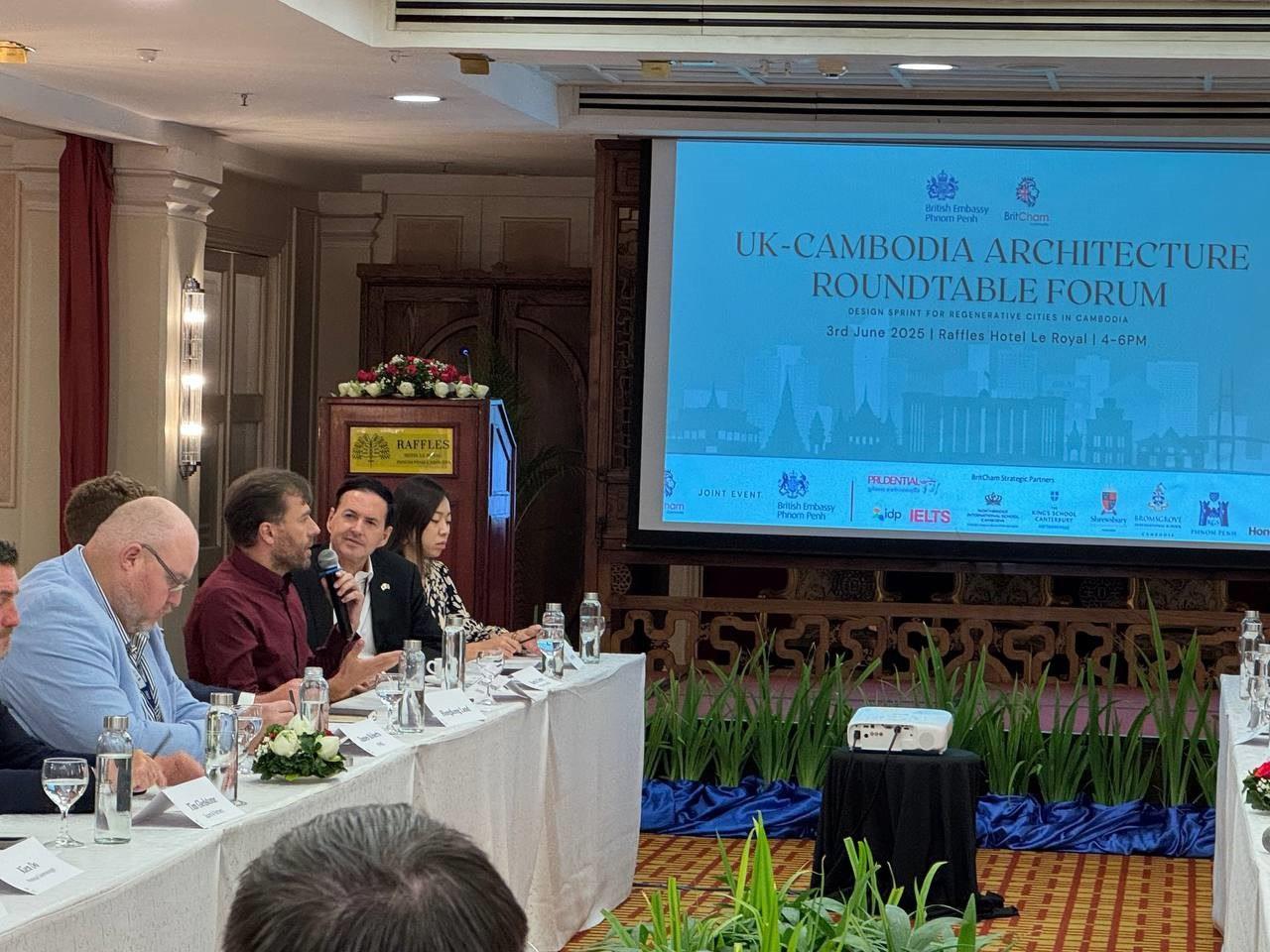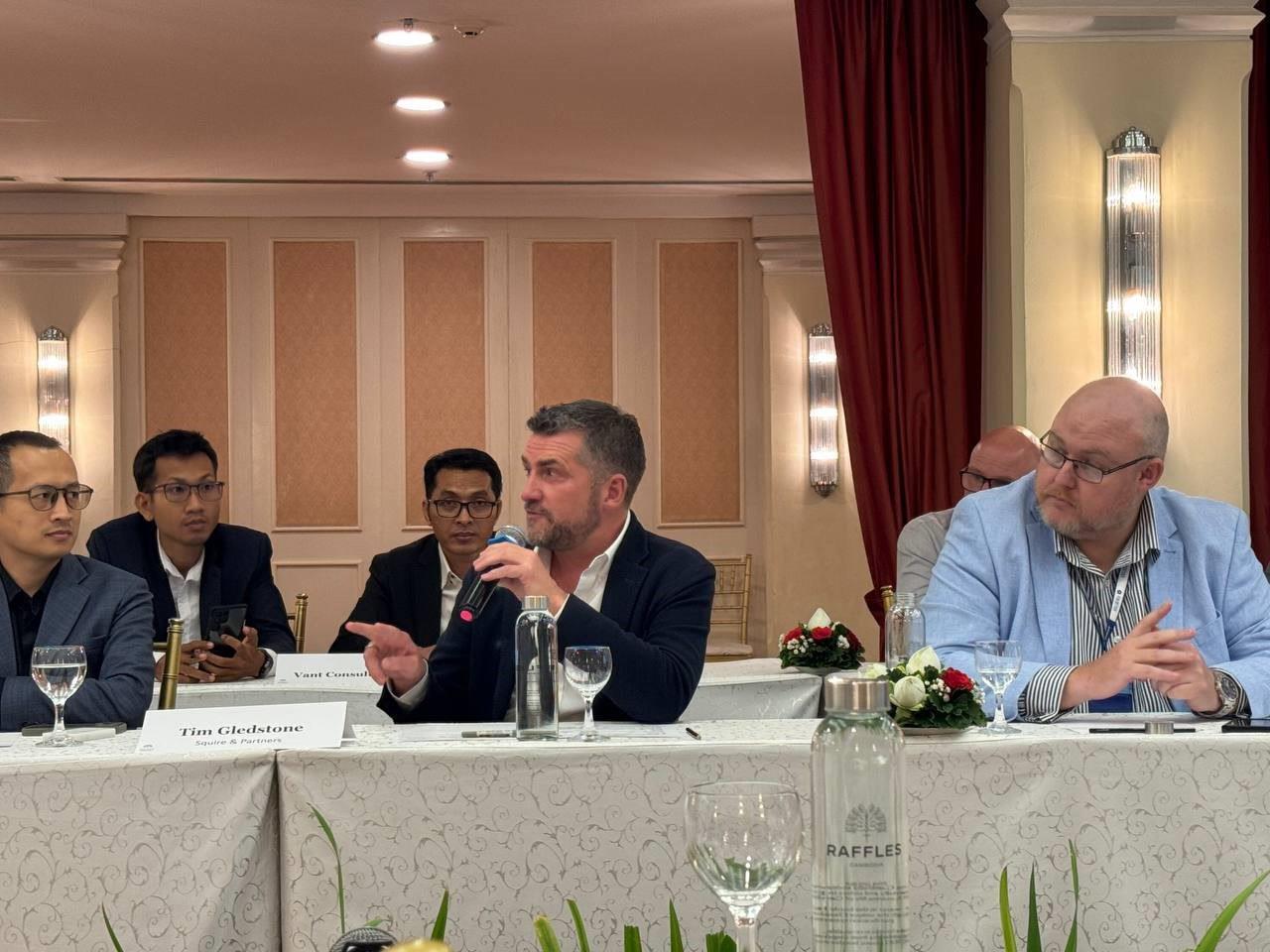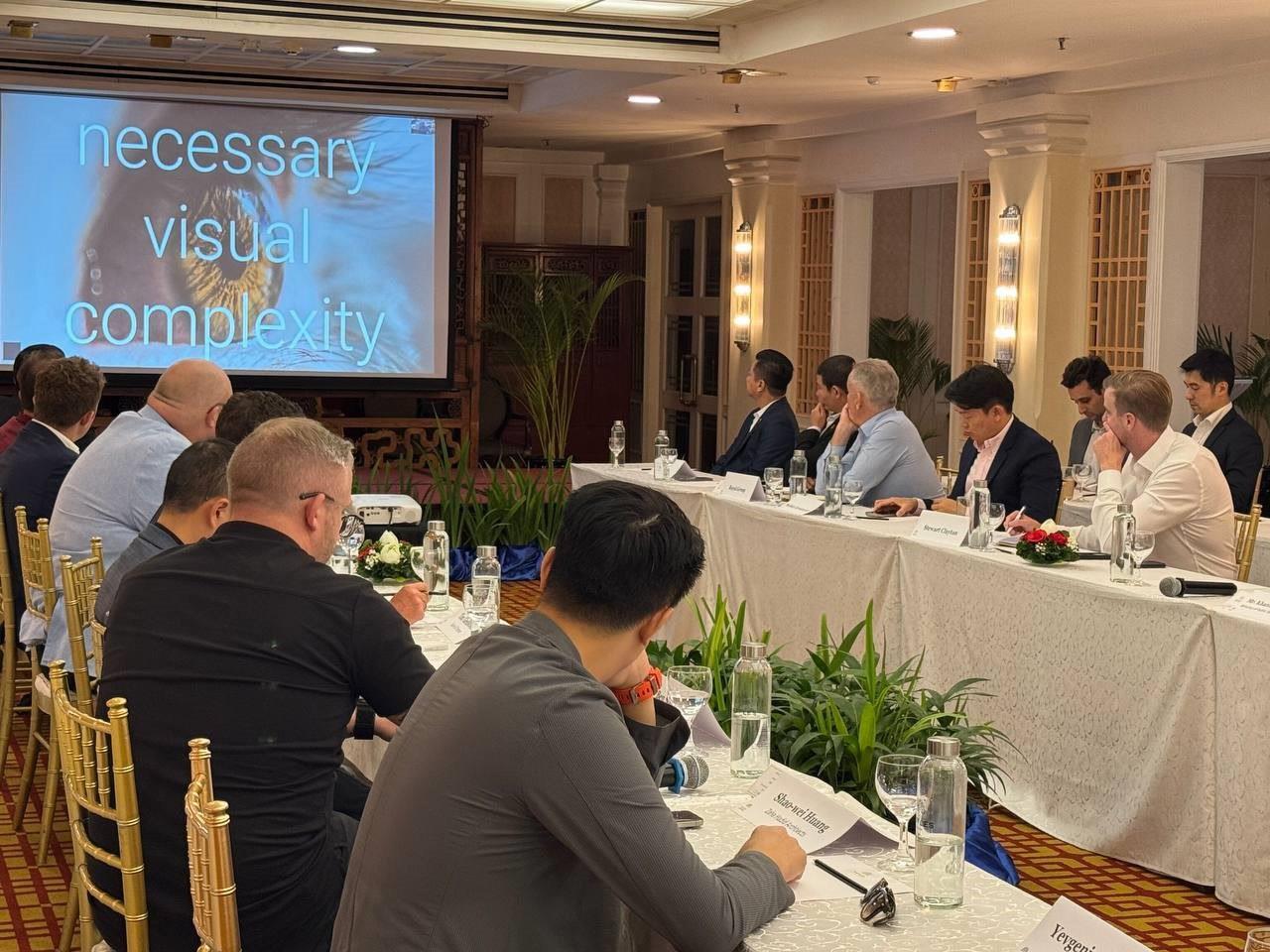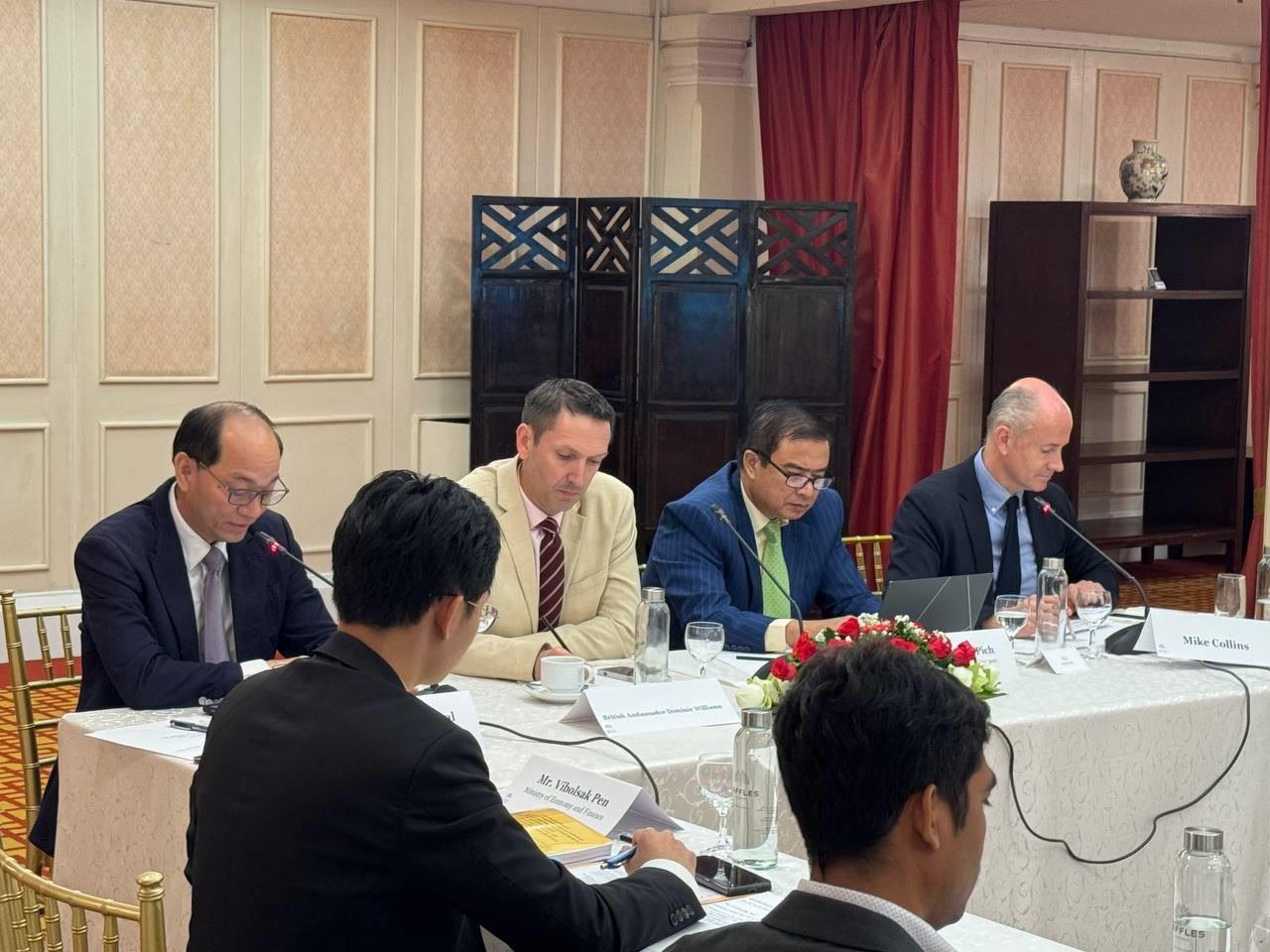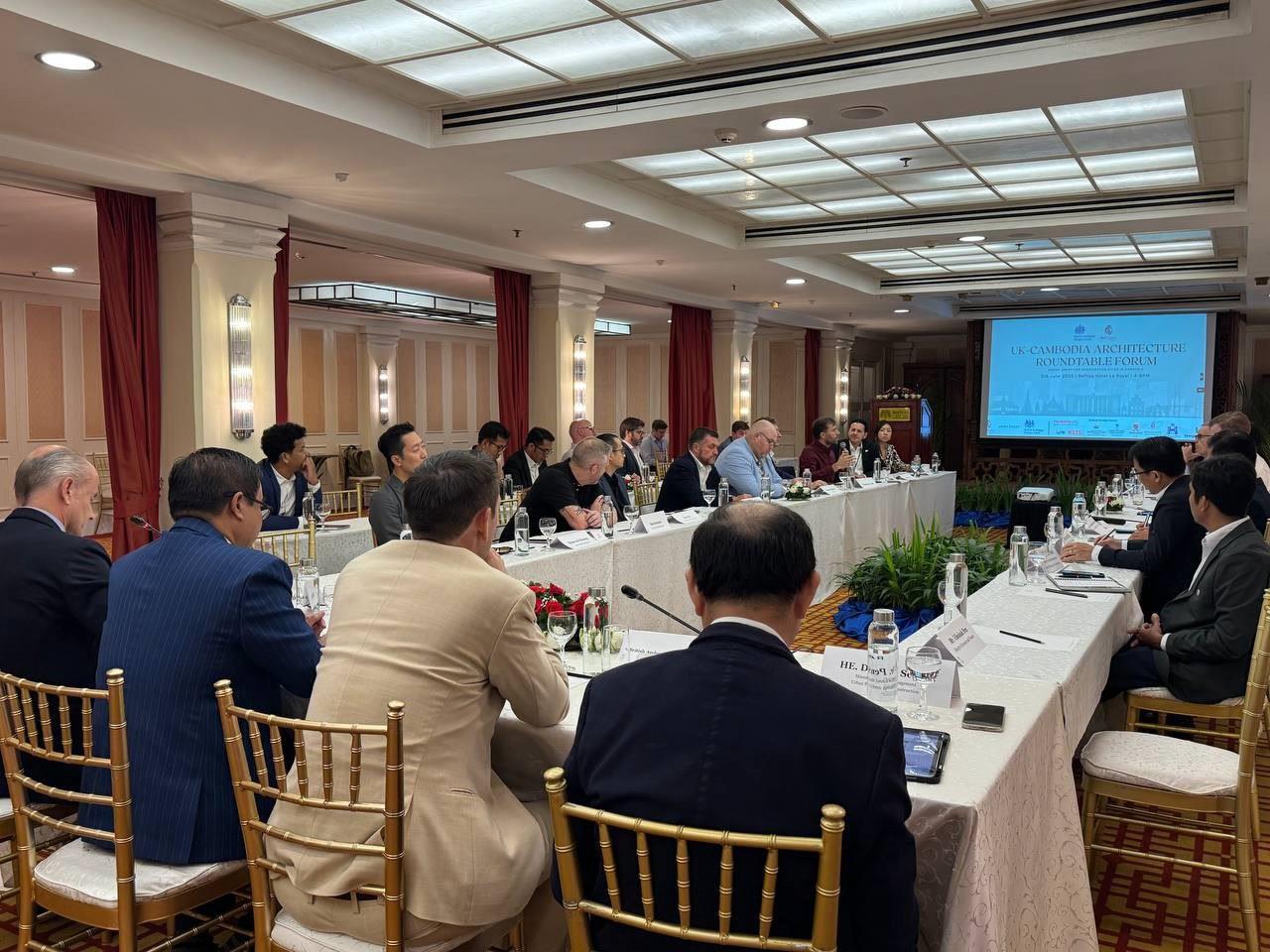(Phnom Penh): The British Embassy Phnom Penh, in collaboration with the British Chamber of Commerce Cambodia (BritCham), successfully hosted a high-level forum on Regenerative Urbanism at Raffles Hotel Le Royal. The event brought together a diverse group of urban planners, architects, investors, and policymakers to explore innovative approaches to sustainable urban development in Cambodia.
The forum featured active participation from senior representatives of the Ministry of Public Works and Transport, Ministry of Economy and Finance, and Ministry of Land Management, Urban Planning and Construction, reflecting the Cambodian Government’s strong commitment to shaping cities that are inclusive, resilient, and investment-ready.
British Ambassador Dominic Williams MBE opened the event, followed by keynote remarks from Mike Collins, Head of Infrastructure APAC at the UK Department for Business and Trade (DBT), who framed the conversation around the urgent need for cities to evolve in response to environmental, social, and economic pressures.
The agenda included a series of engaging presentations, case studies, and collaborative discussions, with key highlights such as:
- An interactive session on lessons learned from 'What Has Gone Wrong?” in urban developments.
- Case studies and innovation clips from PLP and Broadway Malyan around urban design.
- A session led by Broadway Malyan showcasing successful regeneration projects from around the world.
- Ingredients for Success - case study on King’s Cross, London, how planning and policy for green spaces can attract talent, jobs and investment.
- A collaborative discussions on policy frameworks for growth, project development, bankability for upcoming projects and foreign direct investment and identifying the roles and responsibilities of key stakeholders in driving urban transformation
Dominic Williams, MBE, British Ambassador to Cambodia said, “At the Embassy we are committed to supporting the next stage of Cambodia’s development. We believe collaborating on sustainable infrastructure development, including through architecture and good design, will make an important contribution to enhancing Cambodia’s competitiveness and to supporting future growth.
Architecture is something the UK does well. British architecture may cost a little more but its focus on both form and functionality means that British designed buildings – like Vattanac Capital Tower, Exchange Square and the Chip Mong Tower - are some of the most unique and sought after office and commercial spaces in Phnom Penh. Investing in good design like this makes an enduring return on investment, as assets retain their value and utility over time.”
Mike Collins, Head of Infrastructure APAC, UK Department for Business and Trade said, “The cities of tomorrow need to be many things: inclusive, resilient, well-planned, and built on the basic ingredients that make them truly work. This event is about bringing together design, policy, and investment to unlock that potential and create places where people and communities can thrive.”
The event concluded with a wrap-up session where participants shared reflections and outlined actionable next steps to advance regenerative urbanism across Cambodia and the wider region.
This forum marks a significant step in the UK’s ongoing support for Cambodia’s sustainable development, fostering partnerships that integrate design, policy, and investment to build cities where people and communities can thrive.
=FRESH NEWS
